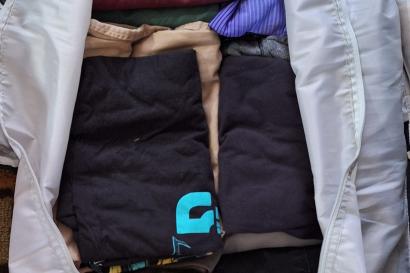This week, my Chinese identity seems to be at the forefront of everyone’s mind. Personally, I identify as a Chinese American. I am too “Americanized” to truly be Chinese and I am too “Chinese” to truly be an American. Labeling myself as a Chinese American felt like the best fit for me. I consider myself to be a typical Chinese girl, sometimes unknowingly continuing the stereotype that people associate with Asians. I am quiet, enjoy studying, and most importantly, am tan and wear glasses.
On every form I fill out that asks for my racial identification, I check the box for Asian, or specifically Chinese. However, since I’ve been living in China, I am more likely to emphasize the fact that I am an “American” or a foreigner, as I don’t speak the language. Identifying as an American is confusing to many residents of Beijing, so I often have to spend anywhere from 2 to 7 minutes explaining my situation.
During orientation, the locals of China were referred to collectively as “The Chinese.” The program advisors would explain that the Chinese had a different definition of personal space or that the Chinese did things differently than how we would do things in America. During those times, I would always go back to my dorm and think to myself “How can I be more Chinese? Am I just seen as an American? Why doesn’t everyone here think I’m an American?” I was definitely confused and being seen as just another Chinese local in restaurants or in shops didn't help my search for how I should label myself. It’s so easy to slip into the shadows here that I sometimes forget my upbringings in America. That is until I try to understand Chinese.
One of the most memorable moments this week was when a daughter from a friend’s host family was shocked I was an American. She looked me up and down and exclaimed, “You don’t look like them! How are you an American? You must be good at speaking Chinese!” I smiled and laughed, and explained I was born in China but I live in the United States. A couple of my friends talked about what happened with me at dinner that night, and one brought up the concept that America was a melting pot. It was just too bad that no one really knew how diverse a country America is!
Another time my identity (or more specifically my family) was brought up was by my professor. I introduced myself just like everyone else did, and he responded “Is anyone from your family Chinese? Can you speak Chinese fluently?” I then had to explain my circumstances, telling him I grew up in a household where English was the only language spoken.
From my experiences, there are both negatives and positives with looking like a typical “foreigner,” in China, someone who doesn’t have family ties in China or who doesn’t seem to look Chinese or even Asian. People are very surprised and are very supportive of someone speaking Chinese. If there is a misunderstanding, the natives are likely to try to speak slower or even try to speak in English to help solve the problem. However, people are more likely to point at or stare or even take pictures. This can be frustrating and I have been told that humor helps get through awkward situations. It can also be a frustrating experience when an IES Abroad student tries so hard to speak Chinese and the person they are talking to only responds in English.
For me, I am definitely able to blend in. I feel like I can better experience the culture and learn the language as most everyone will speak Chinese and will continue to speak to me in Chinese. I have gotten strange looks and felt as though I was expected to know and master the language. I’ve gotten questions that make me think about who I am and where I came from. I feel like coming here has been somewhat of an identity searching adventure of who I was and where I belonged. I love China and I feel like this was the place I was meant to be when studying abroad. It was a place where could I live on about $7 a day, speak Chinese, and come with terms with who I was. The journey may be hard but it is definitely worth it in the end.
Disclaimer: In this post, I mainly rely on physical features to differentiate "American" and "Chinese," and rely on generalizations to discribe individuals. I realize that this is not the only way people classify or identify themselves and that many individuals identify themselves in multiple ways.

Katie Minor
<p>Hey everyone! I’m a junior and I currently attend Trinity University, a small school in San Antonio, Texas. I consider myself a sociologist in training, and I’m interested in learning and experiencing new cultures! This blog depicts my experiences in China, specifically Beijing, China’s capital city, a long way from home! Hope you enjoy and feel free to comment!</p>





